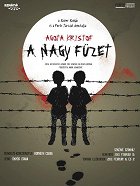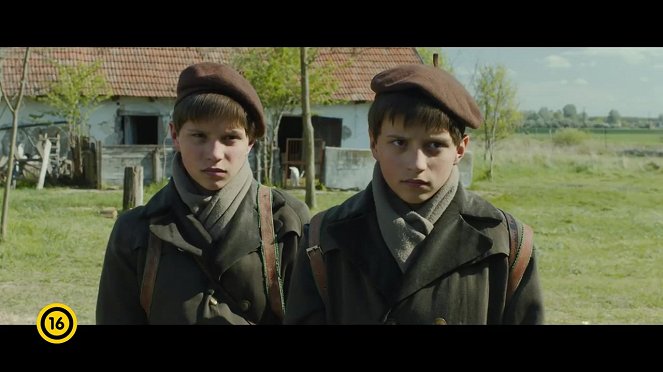Ohjaus:
János SzászKuvaus:
Christian BergerNäyttelijät:
András Gyémánt, László Gyémánt, Piroska Molnár, Ulrich Matthes, Ulrich Thomsen, Lajos Kovács, Orsolya Tóth, János Derzsi, Miklós Székely B. (lisää)Suoratoistopalvelut (1)
Juonikuvaukset(1)
Towards the end of World War II, people in big cities are at the mercy of air raids and death by starvation. A desperate young mother leaves her 13‐year‐old twin sons at their grandmother's house in the country, despite the fact that this grandmother is a cruel and bestial alcoholic. The villagers call her "the Witch" because she is rumored to have poisoned her husband long ago. Previously pampered, the twins must learn how to survive alone in their new, rural surroundings. They realize that the only way to cope with the absurd and inhumane world of adults and war is to become completely unfeeling and merciless. (Sony Pictures Classics)
(lisää)Arvostelut (1)
Yes, Szász really did not live up to his reputation as an uncompromising and original filmmaker that he had in the 1990s. The Notebook looks more like an Eastern European HBO production - a relatively intimate expedition, repeating the same locations, and the fact that it is directed relatively sedentarily. If I deviate from these secondary categories, I also have complaints about the script, which is too dependent on the book by Ágota Kristóf. On the one hand, he draws harsh and raw monologues from it, on the other hand, he sometimes quite roughly motivates what seemed to look natural in the book. Nevertheless, Szász conquered me with these lessons in hardness, renunciation and suffering. The central duo of "wolves" is excellent, the grandmother is sweet and some of the supporting characters are irresistible. In particular, the middle of the film, in which the ruin of maternal love intertwines with the flow of swearing and drastic scenes, only captured artistically in a notebook, is amazing. War penetrates the boys' world as a reflection, and they fight their own war in order to defeat emotions and uproot all love. The stream of blows and deviant episodes, culminating in a drastic act, exudes a musty, unpleasant atmosphere that remotely resembles Haneke's The White Ribbon. It’s too bad about the unfinished stylization, but it’s still a significant experience.
()

